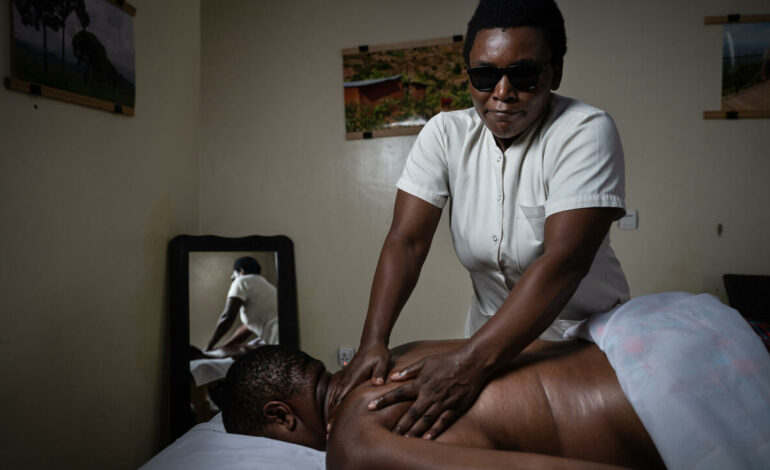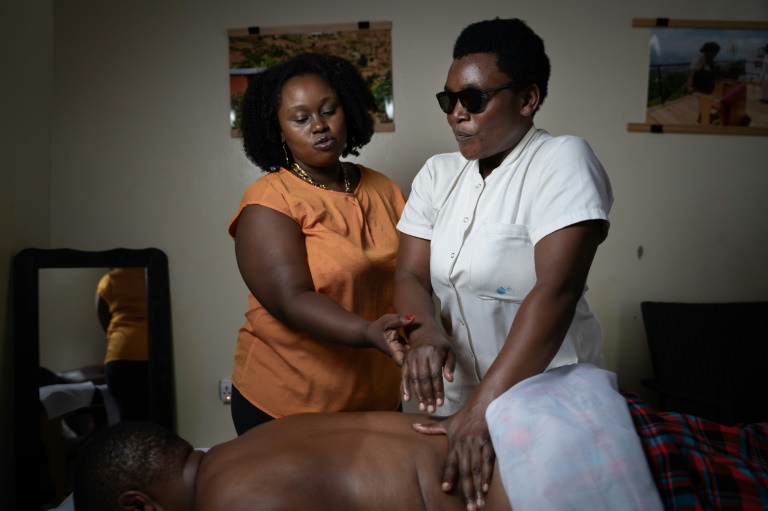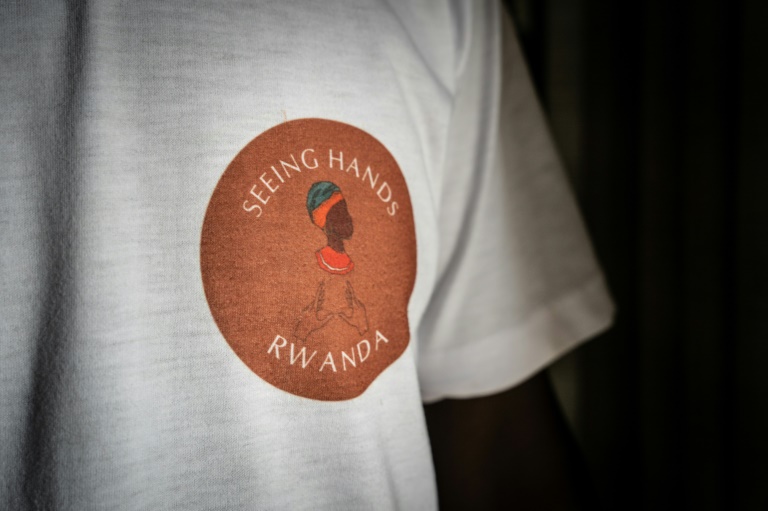
Ekeomah Atuonwu
Since 2017, 43-year-old Beth Gatonye has taught dozens of visually impaired women – and a few men – the art of massage in order to create jobs for Rwanda’s marginalized community.
Even today, demand for massage services offered by her company Seeing Hands is limited to foreigners.
“Rwandans say they don’t want a blind person touching their body because it can bring bad luck,” explains Beth Gatonye.
“It’s as if they believe blindness is contagious.”
Stigma, according to the Rwandan Federation of the Blind (RUB), prevents visually impaired citizens from pursuing educational or professional opportunities.

They had to wait even longer to gain access to university education, which was only made available in 2008.
“The Rwandans think we’re useless people,” Immaculée Karuhura, one of the Seeing Hands masseuses, says. “They think we only survive by begging.”
Despite the fact that the coronavirus pandemic has had a significant impact on their business, with massage services prohibited during Rwanda’s strict lockdowns, Gatonye is now experiencing a surge in demand.

According to the Rwanda National Blindness Survey 2021, untreated cataracts and glaucoma are the leading causes of visual impairment. Up to 80% of cases are thought to be preventable or reversible.
The job means a lot to her. “I feel happy when I serve a client,” she says, emphasizing how the job has given her life meaning and a sense of integration: “I feel like I’m communicating with my clients during a therapy session, and that really moves me.”




